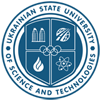PROFESSIONAL COMPETENCIES OF A LIBRARIAN OF A HIGHER EDUCATIONAL INSTITUTION
DOI:
https://doi.org/10.15802/unilib/2021_248511Keywords:
professional competencies, university library specialist, university libraryAbstract
Objective. Development and implementation of the concept of professional competencies of librarians. Methods. In the course of the research, a complex of methods of theoretical analysis (terminological analysis; literature analysis) and synthesis was used; methods of comparison, generalization, systematization of an array of publications. Results. The study of the research on the development and implementation of the professional competence of librarians made it possible to identify the necessary requirements for university library specialists. The resulting practice revealed the potential of librarians during telecommuting. Conclusions. In modern scientific theory, the concept of human competence has a broad interpretation and a complex structural structure. In general, it is about the ability of a person to perform certain activities, perform tasks or work; the availability of an appropriate set of knowledge, skills and attitudes that enable them to act effectively in a professional field or activity. Professional competencies of librarians are necessary for the implementation of professional activities, opportunities for self-improvement throughout life.
References
Bakulina, N. M. (2010). Kompetentnist – intehralna otsinka personalu. Retriеved from https://core.ac.uk/download/pdf/32607037.pdf (in Ukrainian)
Boyatzis, R. (2008). Kompetentnyy menedzher: obrazets effektivnoy raboty [Competent manager: a model for effective performance]. Moscow, Russia: HIPPO. Retriеved from https://cutt.ly/FR33GV2 (in English)
European Commission (DG EAC) (2004). Key Competences for Lifelong Learning. A European Reference Framework. Brussels. Retriеved from https://step4-sfc.eu/IMG/pdf/201509_a_integrer_dans_le_site_basicframe.pdf (in English)
McClelland, D. C. (1973). Testing for Competence Rather than for Intelligence. American Psychologist, 28(1), 1-14. doi: https://www.therapiebreve.be/documents/mcclelland-1973.pdf (in English)
Moroz, L. I. (2007). Profesiino-psykholohichnyi treninh u stanovlenni osobystosti fakhivtsia (na prykladi pratsivnykiv OVS). Ivano-Frankivsk: Naddvirnianska drukarnia. (in Ukrainian)
New Webster’s Dictionary and Thesaurus of the English Language (2003). Danbury: Lexicon Publications. (in English)
Pro skhvalennia Kontseptsii rozvytku tsyfrovykh kompetentnostei ta zatverdzhennia planu zakhodiv z yii realizatsii: Rozporiadzhennia KMU №167-r. (2021). Retriеved from https://rogatyn-osvita.gov.ua/news/13-20-35-13-08-2021/ (in Ukrainian)
Raven, J. (1984). Competence in Modern Society: Its Identification, Development and Release. London: H. K. Lewis & Co. (in English)
Slovnyk inshomovnykh sliv. (2000). Kyiv: Naukova dumka. (in Ukrainian)
Spencer L. M., & Spencer S. M. (2005). Competence at work. Models for Superior Performance. Moscow, Russia: HIPPO. Retriеved from https://cutt.ly/eYvwfxh (in Russian)
Whiddet, S., & Hollyford, S. (2008). Rukovodstvo po kompetenziym. Moscow: HIPPO. Retriеved from https://cutt.ly/fR7cWAU (in Russian)
Published
How to Cite
Issue
Section
License
Copyright (c) 2021 Irina I. MAKEEVA

This work is licensed under a Creative Commons Attribution 4.0 International License.







